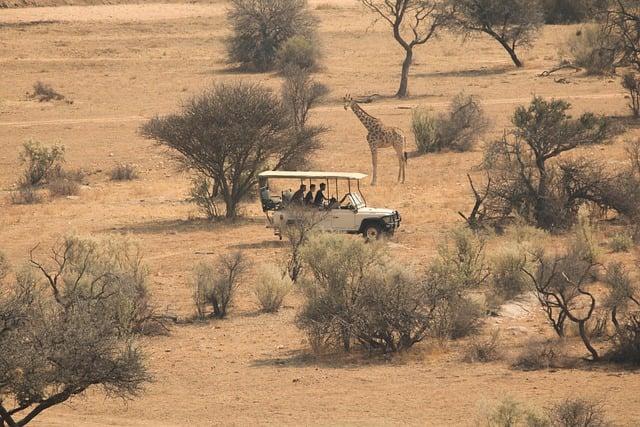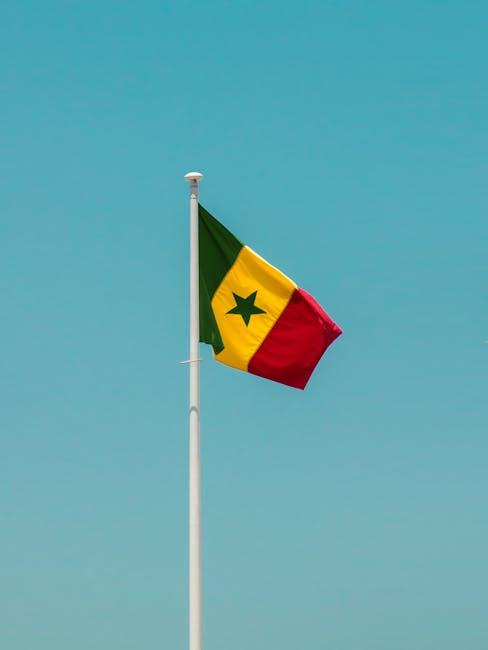In the vibrant tapestry of global travel, Africa stands out as a continent rich in cultural diversity, breathtaking landscapes, and profound historical narratives. Yet, woven into this intricate fabric are regions marked by political unrest, sparking a perennial debate among adventurers and armchair travelers alike: should tourists venture into these political hotspots, or is it wiser to chart a course for more stable destinations? This question transcends mere travel logistics, delving into the ethics of tourism, the impact on local communities, and the personal quest for authentic experiences. In this article, we embark on an exploratory journey, navigating the complex crossroads of wanderlust and caution, to uncover whether the allure of Africa’s tumultuous regions is worth the risks and rewards they promise.
Navigating Africas Political Landscape: A Travelers Guide
When contemplating a journey to Africa, understanding the political nuances of your destination is crucial. While the continent offers breathtaking landscapes and vibrant cultures, certain regions may experience political instability. As a traveler, it’s important to balance your adventurous spirit with awareness and caution. Researching current events is key; governmental advisories and local news can provide insight into areas to approach with care.
Consider the benefits and drawbacks of visiting politically sensitive areas. Pros include:
- Unique experiences that offer deeper understanding of the region’s history and culture.
- Opportunities to engage with local communities, fostering cross-cultural connections.
However, cons may involve:
- Potential safety risks due to civil unrest or political demonstrations.
- Travel disruptions, including roadblocks or curfews, affecting your itinerary.
Ultimately, the decision to visit political hotspots should be made after careful consideration of the current climate, personal comfort levels, and travel advisories. Embrace the journey with both eyes open, respecting the complexities of Africa’s diverse political landscape.

Understanding the Risks: Safety Concerns in Volatile Regions
Traveling to politically unstable regions in Africa can be a thrilling adventure, yet it is not without its perils. Safety concerns in these areas are multifaceted and require careful consideration. Tourists should be aware of the potential risks, which can range from civil unrest to sudden changes in government policies. While the allure of experiencing a unique culture or witnessing historical events may be tempting, it’s crucial to weigh these attractions against the dangers involved.
- Unpredictable political climates: These can lead to sudden violence or demonstrations, posing threats to both locals and tourists.
- Limited access to emergency services: In many volatile regions, healthcare and law enforcement may be overwhelmed or inaccessible.
- Potential for travel restrictions: Governments might impose curfews or close borders with little warning, leaving tourists stranded.
Ultimately, while Africa offers a plethora of enriching experiences, the safety of travelers must remain a top priority. Engaging with travel advisories, consulting with local experts, and having contingency plans can help mitigate some of these risks, ensuring that the journey remains both safe and memorable.

Cultural Sensitivity: Engaging Respectfully in Politically Charged Areas
When traveling through politically charged regions, it is essential for tourists to navigate the delicate balance between exploration and respect. Understanding the cultural and political landscape of these areas is not only a gesture of respect but also a way to ensure personal safety. Tourists should consider the following when planning their visits:
- Research and Awareness: Stay informed about the current political climate and historical context of the destination. This knowledge can prevent inadvertently offending locals or becoming entangled in sensitive situations.
- Local Engagement: Engage with local communities and guides who can provide insights and advice on how to conduct oneself respectfully. This approach fosters mutual understanding and can lead to more meaningful experiences.
- Respectful Observation: While it may be tempting to document everything, exercise discretion in politically sensitive areas. Avoid taking photos or videos of protests or government buildings, as this can be seen as intrusive or even illegal.
By approaching politically sensitive areas with an open mind and a respectful attitude, tourists can contribute to a positive cultural exchange while ensuring their travels remain safe and enriching.

Making Informed Choices: Balancing Adventure with Awareness
In the ever-evolving landscape of global travel, Africa presents a tapestry of vibrant cultures, breathtaking landscapes, and profound historical narratives. However, when planning a journey to this diverse continent, it’s crucial to weigh the allure of adventure against the backdrop of regional political climates. Understanding the local context is not just about ensuring personal safety, but also about respecting the communities you wish to explore. Before setting out, consider these key points:
- Research and Awareness: Keep abreast of the latest news and travel advisories related to your destination. Understanding the political climate can help you make informed decisions about which areas to visit.
- Local Insights: Engage with locals or seasoned travelers who can provide firsthand accounts of the current situation. Their perspectives can offer invaluable insights that guide your travel plans.
- Flexible Itineraries: Be prepared to adjust your plans as situations can change rapidly. Flexibility is key to navigating potential challenges while still enjoying the essence of your journey.
By balancing adventure with awareness, travelers can ensure that their experiences in Africa are not only memorable but also respectful and safe. In this way, tourism becomes a bridge of understanding and appreciation between diverse cultures.
Concluding Remarks
As the sun sets over the diverse landscapes of Africa, casting its golden hues on both bustling cities and serene savannahs, the question of whether tourists should steer clear of political hotspots remains a complex tapestry woven with threads of caution, curiosity, and compassion. While the allure of Africa’s rich cultural heritage and breathtaking vistas beckons travelers from around the globe, the underlying currents of political unrest cannot be ignored.
In navigating this intricate mosaic, it is essential for tourists to equip themselves with knowledge and understanding, balancing their adventurous spirit with an awareness of the socio-political climate. The decision to explore or avoid certain regions is not merely a matter of personal safety, but also a reflection of respect for the people whose lives are intertwined with the land’s history and future.
Ultimately, the choice lies with the traveler, guided by informed insights and a mindful approach. Whether one chooses to immerse themselves in the vibrant cultures or to tread cautiously, Africa’s heart beats with an enduring rhythm that continues to inspire, challenge, and captivate. As we conclude this exploration, may your journeys be as enriching as the stories you will one day tell, painted with the colors of understanding and empathy.


































